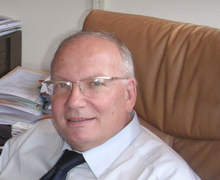Chapitre d'ouvrage
M3
Models, Methods, and Multilingualism (M3)
The M3 team is interested in models and methods aimed at the fundamental description and automatic processing of natural language and its multilingual dimension. This involves the development of models and methods able to process, extract, and describe relevant characteristics of these systems from datasets. We consider languages in all their uses, with special focus on under-resourced languages and comparative approaches to language description (multilingual approaches). The team questions the interactions between models and systems: How does a model help our understanding of languages? How do sets of languages differ, and at what levels? How do we use generative models to produce controlled instances of given phenomena? The implementation of explainable and adapted models allows interaction between disciplines and promotes interdisciplinary work (computer science, language sciences, sociology, psychology). The research carried out in the M3 team falls into three main axes:
A- Models and Methods
This axis focuses on learning paradigms: developing data models and algorithms (models with many or few parameters, generative or not), with a view to their application to automatic language processing and languages as structured objects. These models are typically applied to the objects studied in the other two axes. Particular attention is paid to issues related to accessibility: reflecting on the specific methods to be implemented to develop inclusive technologies for our society. Effective, sober models, adapted to the representation of specific data, are particularly sought to promote explainable and responsible approaches to the data studied. These models make it possible to create hybrid solutions that try to control generative AIArtificial Intelligence. They also provide approaches that can be used to build more ethical systems.
B- Typology, Variation, and Universals in Languages
This axis focuses on describing the characteristics of linguistic systems based on corpora. This involves automatically applying typological schemes and language comparisons according to these characteristics. Considering variation is a major point, with work on diatopic, diastratic, diaphasic, or diachronic changes within languages, or linked to language contact of under-resourced or well-described languages. Syntactic, phonological, phonetic, articulatory, and prosodic systems are considered. The representation of the differences (in terms of distances or projected onto an atlas) between the systems studied is another highlight.
C- Contextualized Behaviors for Interaction
This axis models and describes performances during situated communicational interactions, at para- and extra-linguistic levels: whether for pragmatic functions (speech acts, attitudinal nuances), emotions (affective interaction, social emotions), nudges (gentle manipulation), vocal effort (Lombard speech, voice strength), etc. It aims to propose models of behavioral changes linked to these phenomena, in order to be able to detect them, measure their variation or dynamics, and categorize them. The analysis of the acoustic-linguistic parameters of the voice (parameters derived from models, glottal source, articulatory choices, etc.) makes it possible to link performances and functions.
Coordination
Members
-

-

-
-

-

-
-
-
-

Sciences et Technologies des Langues
M3
Devillers Laurence
Professor at Sorbonne Université
Reseracher in Artficial Intelligence
President of Fondation Blaise Pascal de médiation en mathématiques et
-

Sciences et Technologies des Langues
LIPSLangue Interaction Parole et Signes, M3
Evrard Marc
Associate Professor
-

-
-
-

Sciences et Technologies des Langues
LIPSLangue Interaction Parole et Signes, M3
Lienard Jean-Sylvain
Fellow Researcher
-
-

-
-

-

-
-
Publications
-
-
Chapitre d'ouvrage
Natalia Grabar, Thierry Hamon, Emmanuelle Canut. Le langage simplifié pour le public FLE : des critères linguistiques à interroger. Éducation, formation et communication. L’accompagnement des publics en exil. Problèmes de langue et modalités de communication, A paraître, 2865310019. ⟨hal-05465059⟩
-
Article dans une revue
Anjani Dhrangadhariya, Roger Hilfiker, Karl Martin Sattelmayer, Nona Naderi, Katia Giacomino, et al.. RoBuster: A Corpus Annotated with Risk of Bias Text Spans in Randomized Controlled Trials in Physiotherapy and Rehabilitation (forthcoming/in press). JMIR Formative Research, 2023, ⟨10.2196/55127⟩. ⟨hal-05462769⟩
-
Communication dans un congrès
Fanny Ducel, Karën Fort, Aurélie Névéol. La linguistique appliquée pour une IAIntelligence Artificielle plus éthique. NéALA 2025 – Colloque sur Naturel et Artificiel en Linguistique Appliquée : une époque de paradoxes, Jul 2025, Nancy, France. ⟨hal-05457534⟩
-
Autre publication scientifique
Luciana Benotti, Fanny Ducel, Karën Fort, Guido Ivetta, Zhijing Jin, et al.. Navigating Ethical Challenges in NLP: Hands-on strategies for students and researchers. Proceedings of the 63rd Annual Meeting of the Association for Computational Linguistics (Volume 5: Tutorial Abstracts), 2025, ⟨10.18653/v1/2025.acl-tutorials.5⟩. ⟨hal-05457524⟩
-
Article dans une revue
Mathieu Laï-King, Patrick Paroubek. Evaluation of Clinical Trials Reporting Quality using Large Language Models. Revue TALTraitement Automatique des langues : traitement automatique des langues, 2024, 65 (2), pp.13-38. ⟨10.57896/2024-talTraitement Automatique des langues-65_2_1⟩. ⟨hal-05447024⟩
-
Chapitre d'ouvrage
Simon Devauchelle, Albert Rilliard, David Doukhan, Lucas Ondel Yang. Variation of Perceived Voice Pitch Across Time Periods, Gender, and Age in French Media Archives. Valentina De Iacovo; Bianca Maria De Paolis; Daniela Mereu. The voice in the media and new technologies, 12 (004), Officinaventuno, pp.47-71, 2024, Studi Associazione Italiana Scienze della Voce, 978-88-97657-73-6. ⟨10.17469/O2112AISV000004⟩. ⟨hal-05450567⟩
-
Thèse
Armand Stricker. Towards More Natural Dialogues : Integrating Chitchat Capabilities into Task-oriented Dialogue Agents. Document and Text Processing. Université Paris-Saclay, 2025. English. ⟨NNT : 2025UPASG065⟩. ⟨tel-05453281⟩
-
Communication dans un congrès
Mathieu Laï-King, Patrick Paroubek. Pre-training data selection for biomedical domain adaptation using journal impact metrics. 23rd Workshop on Biomedical Natural Language Processing, Aug 2024, Bangkok, Thailand. pp.363-369, ⟨10.18653/v1/2024.bionlp-1.27⟩. ⟨hal-05447036⟩
-
Rapport
Adrien Berthelot, Tiago da Silva Barros, Laurent Lefèvre, Anne-Laure Ligozat, Emeline Pegon. Multi-criteria and multi-stage environmental study of Pl@ntnet service for the year 2024. Inria Lyon. 2026. ⟨hal-05448455⟩
-
Communication dans un congrès
François Buet, Camille Guinaudeau, Cyril Grouin, Sahar Ghannay, Shin’ichi Satoh. XAI for Gender Representation in Media Analysis. 2025 IEEE International Conference on Acoustics, Speech and Signal Processing (ICASSP 2025), IEEE Signal Processing Society, Apr 2025, Hyderabad, India. pp.1-5, ⟨10.1109/ICASSP49660.2025.10888945⟩. ⟨hal-05442625⟩
-
Communication dans un congrès
Phrashant Khatri, Hansjörg Mixdorff, Preeti Rao, Albert Rilliard. Recognition of Audio-Visual Attitudes. 36. Konferenz Elektronische Sprachsignalverarbeitung (ESSV), Department of Speech Science and Phonetics of the Institute of Music, Media and Speech Sciences at the Martin Luther University Halle-Wittenberg in Halle/Saale; Central German Association for Speech Science and Speech Education, Mar 2025, Halle / Saale, Germany. pp.19-26. ⟨hal-05426157⟩
-
Poster de conférence
Luc Pommeret, Sophie Rosset, Christophe Servan, Sahar Ghannay. AtomicEval: Evaluation Framework for Atomic Proposition Autonomy with French Propositioner. 10th Junior Conference on Data Sciences and Engineering, Sep 2025, Gif-sur-Yvette, France. . ⟨hal-05414939⟩
-
Communication dans un congrès
Michael Filhol. AZVD as a Sign Language writing system proxy, and the potential evolution. Proceedings of Grapholinguistics in the 21st century, Oct 2024, Venice, Italy. ⟨hal-05344585⟩
-
Autre publication scientifique
Bran Knowles, Vicki L Hanson, Christoph Becker, Mike Berners-Lee, Andrew A Chien, et al.. Climate Change: What is Computing’s Responsibility?. 2025, pp.1-18. ⟨10.4230/DagMan.11.1.1⟩. ⟨hal-05369257⟩
-
Communication dans un congrès
Quentin Le Tellier, Marc Evrard, Albert Rilliard, Jean-Sylvain Liénard. Impact de la parole expressive sur l’estimation de l’intensité vocale. CFA 2025 – 17e Congrès Français d’Acoustique, Société Française d’Acoustique (SFA), Apr 2025, Paris, France. ⟨hal-05365670⟩
-
Communication dans un congrès
Jean-Sylvain Liénard, Albert Rilliard, Marc Evrard, Quentin Le Tellier. Variabilité du signal de parole en fonction de la Force de Voix en situation d’interaction orale. CFA 2025 – 17e Congrès Français d’Acoustique, Société Française d’Acoustique (SFA), Apr 2025, Paris, France. ⟨hal-05366097⟩
-
Communication dans un congrès
Quentin Le Tellier, Marc Evrard, Albert Rilliard, Jean-Sylvain Liénard. Robust Vocal Intensity Prediction: Overcoming Dataset Bias with Pretrained Deep Models. Interspeech 2025, Odette Scharenborg; Catharine Oertel; Khiet Truong, Aug 2025, Rotterdam, Netherlands. pp.1728-1732, ⟨10.21437/Interspeech.2025-2311⟩. ⟨hal-05359416⟩
-
Communication dans un congrès
Fabrizio Nunnari, Cristina Luna Jiménez, Rosalee Wolfe, John Mcdonald, Michael Filhol, et al.. 9th Workshop on Sign Language Translation and Avatar Technologies (SLTAT 2025). 9th workshop on Sign Language Translation and Avatar Technologies (SLTAT), Sep 2025, Berlin, Germany. ⟨10.1145/3742886.3759656⟩. ⟨hal-05344671⟩
-
Article dans une revue
Albert Rilliard, João Antônio De Moraes, Donna Erickson, Marine Guerry, Angelika Hönemann, et al.. Cross-cultural dimensions organizing prosodic attitudes reception. Journal of Speech Sciences, 2025, 14, pp.e025012. ⟨10.20396/joss.v14i00.20379⟩. ⟨hal-05359361⟩
-
Article dans une revue
Thibault Fabacher, Erik-Andre Sauleau, Emmanuelle Arcay, Bineta Faye, Maxime Alter, et al.. Efficient extraction of medication information from clinical notes: an evaluation in 2 languages. Journal of the American Medical Informatics Association, 2025, pp.ocaf113. ⟨10.1093/jamia/ocaf113⟩. ⟨hal-05375038⟩
-
Article dans une revue
David Doukhan, Anissa-Claire Adgharouamane, Marlène Coulomb-Gully, Simon Devauchelle, Benjamin Elie, et al.. Voyage dans le temps : des archives télévision et radio pour observer l’évolution des voix. Culture et recherche, 2025, 149, pp.104-107. ⟨hal-05373155⟩
-
Communication dans un congrès
Lautaro Estienne, Gabriel Ben Zenou, Nona Naderi, Jackie Cheung, Pablo Piantanida. Collaborative Rational Speech Act: Pragmatic Reasoning for Multi-Turn Dialog. Empirical Methods in Natural Language Processing (EMNLP 2025), Nov 2025, Suzhou, China. pp.22520-22534, ⟨10.18653/v1/2025.emnlp-main.1145⟩. ⟨hal-05347472⟩
-
Communication dans un congrès
Marco Naguib, Xavier Tannier, Aurélie Névéol. Few-shot clinical entity recognition in English, French and Spanish: masked language models outperform generative model prompting. The 2024 Conference on Empirical Methods in Natural Language Processing (EMNLP 2024), Nov 2024, Miami, United States. pp.6829-6852, ⟨10.18653/v1/2024.findings-emnlp.400⟩. ⟨hal-05331970⟩
-
Communication dans un congrès
Julie Halbout, Diandra Fabre. Corpus bilingue sous-titrage et Langue des Signes Française : la problématique de l’alignement automatique des données. 20e Conférence en Recherche d’Information et Applications (CORIA) 32ème Conférence sur le Traitement Automatique des Langues Naturelles (TALN) 27ème Rencontre des Étudiants Chercheurs en Informatique pour le Traitement Automatique des Langues (RECITAL) Les 18e Rencontres Jeunes Chercheurs en RI (RJCRI), Jul 2025, Marseille, France. pp.91-103. ⟨hal-05330660⟩
-
Communication dans un congrès
Christophe Servan, Cyril Grouin, Aurélie Névéol, Pierre Zweigenbaum. Comment évaluer un grand modèle de langue dans le domaine médical en français ?. 20e Conférence en Recherche d’Information et Applications (CORIA) 32ème Conférence sur le Traitement Automatique des Langues Naturelles (TALN) 27ème Rencontre des Étudiants Chercheurs en Informatique pour le Traitement Automatique des Langues (RECITAL) Les 18e Rencontres Jeunes Chercheurs en RI (RJCRI), Jul 2025, Marseille, France. pp.51-67. ⟨hal-05329783⟩
-
Communication dans un congrès
Omar Adjali, Olivier Ferret, Sahar Ghannay, Hervé Le Borgne. Génération augmentée de récupération multi-niveau pour répondre à des questions visuelles. 20e Conférence en Recherche d’Information et Applications (CORIA) 32ème Conférence sur le Traitement Automatique des Langues Naturelles (TALN) 27ème Rencontre des Étudiants Chercheurs en Informatique pour le Traitement Automatique des Langues (RECITAL) Les 18e Rencontres Jeunes Chercheurs en RI (RJCRI), Jul 2025, Marseille, France. pp.128-130. ⟨hal-05330645⟩
-
Communication dans un congrès
Eve Sauvage. SynKGP: Knowledge Graph Population with Syntactic-LLM Hybridation for Question-Answering. ECIR, Apr 2025, Lucca, Italy. pp.212-219, ⟨10.1007/978-3-031-88720-8_34⟩. ⟨hal-05344073⟩
-
Communication dans un congrès
Anca Dobrescu, Sarah Cohen-Boulakia, Nona Naderi. Attempt to rerun, reproduce and replicate Clinical Trials Sentence Classification Studies: lessons learnt. ACM REP ’25: ACM Conference on Reproducibility and Replicability, Jul 2025, Vancouver, Canada. pp.243-244, ⟨10.1145/3736731.3746133⟩. ⟨hal-05326886⟩
-
Communication dans un congrès
Anne-Laure Ligozat. Côté obscur de l’IAIntelligence Artificielle : quels bénéfices réels de l’IAIntelligence Artificielle pour faire face aux crises environnementales ?. GreenDays 2023, Mar 2023, Lyon, France. ⟨hal-05317071⟩













